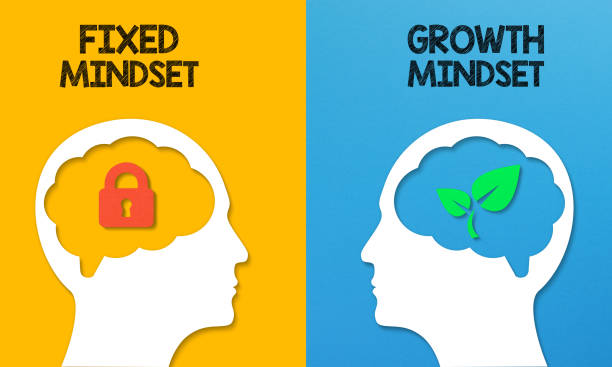
Fostering a Growth Mindset in Students Facing Adversity
Developing a growth mindset – particularly in students facing adversity – can be the key to unlocking students’ full potential. Here’s a closer look at the growth mindset, why it’s so beneficial for students, and how teachers, educators, and parents can help children and teens develop it.
What Is a Growth Mindset?
Coined by psychologist Carol Dweck, a growth mindset is the belief that abilities and intelligence can be developed through dedication, hard work, and the right kind of encouragement. This is a contrast to a fixed mindset, where people believe their talents and abilities are innate gifts and unchangeable.
Those with a growth mindset embrace challenges, perceive effort as a pathway to mastery, and view setbacks as opportunities to learn and grow. They are also more likely to find inspiration in others’ success, fostering an environment of continuous self-improvement and resilience.
The Importance of a Growth Mindset for Students
A growth mindset plays an especially significant role in shaping students’ outlook on learning. The belief in the ability to improve and succeed shapes their approach to education and personal development, affecting their motivation, performance, and resilience. For students facing adversity — be it academic, socio-economic, or personal — a growth mindset can be a powerful tool. It enables them to see beyond their circumstances, turning obstacles into opportunities for growth.
Students with a growth mindset understand that their abilities can be developed, providing them the resilience needed to persevere through adversity. Such a mindset can improve academic achievement, increase motivation, enhance self-esteem, and reduce stress and anxiety. Recent research highlights how this mindset can help disadvantaged students close the academic achievement gap, finding that “students with a growth mindset scored 31 points higher in reading, 27 points higher in science, and 23 points higher in mathematics than students with a fixed mindset after accounting for the socio-economic profile of students and schools.”
Growth mindsets empower students to take control of their educational journey, setting the stage for lifelong learning and success.
Strategies for Fostering a Growth Mindset
Creating an environment that nurtures a growth mindset requires intentional effort from educators. Here are some strategies for fostering a growth mindset in the classroom:
- Praise the process, not just the outcome. Commend students on their effort, strategy, focus, and improvement. This helps students understand that learning is a process and that effort leads to achievement. It’s not about getting everything right; it’s about trying, learning, and improving.
- Emphasize the power of “yet.” The word “yet” is a powerful tool. Instead of saying “I can’t do this,” students learn to say “I can’t do this yet.” It signals that learning and improvement are on the horizon, promoting a future-focused, growth-oriented perspective.
- Teach the value of failure. Reframe failure as a part of the learning process. Encourage students to see mistakes and setbacks as opportunities to learn, not as personal deficits.
- Model a growth mindset. As an educator, lead by example. Show enthusiasm for learning, admit when you don’t know something, and demonstrate how you learn from mistakes. Students often emulate the behaviors and attitudes of their mentors.
- Incorporate growth mindset language and affirmations. Use language that fosters a growth mindset, such as “learning,” “growth,” “effort,” and “strategy.” Encourage students to use growth mindset affirmations like “I can learn anything I want to,” “I embrace challenges,” “I learn from my mistakes,” etc.
- Set high expectations. Believe in your students’ capacity to grow and improve. Setting high expectations communicates your belief in their abilities and potential.
How Tiers Free Academy Can Help Students Develop a Growth Mindset
A homeschool high school program can be uniquely tailored to help students facing adversity develop a growth mindset. In a homeschool environment, students have the flexibility and space to learn at their own pace, without the pressure of traditional classroom competition. This personalized learning approach can allow them to understand that effort and strategy are the keys to mastery, not necessarily speed or comparison with others.
This encourages a mindset of continuous learning and improvement, rather than a fixed perspective based on test scores or grades. In this way, homeschool high school programs like the Tiers Free Academy Diploma Program can foster an environment that promotes resilience and a love for learning, empowering students to view challenges as stepping stones for growth, even amidst adversity. Learn more about how Tiers Free Academy can help promote brighter futures and stronger communities.
Fostering a growth mindset is crucial for all students, but it holds a special significance for those facing adversity. It equips them with the grit and determination needed to overcome challenges, providing a foundation for success not just in school, but also in life. This impact is transformative, offering students a brighter future where they are in control of their learning journey.
The Dr. Annise Mabry Foundation is dedicated to improving our community by enhancing education opportunities, promoting synchrony between law enforcement and constituents, and encouraging community engagement. Our programs and initiatives include the Southwest GA Community Policing Resource Center and the Tiers Free Academy, a homeschool cooperative for students in grades 9-12 that provides an alternative diploma program for homeless LGBTQ youth, sex trafficking survivors, youth aging out of foster care, youth aging out of the public school system, youth previously under supervision of the Department of Juvenile Justice, and high school dropouts. To learn more about our offerings or support our work, consider subscribing to our newsletter or donating today!



No Comments